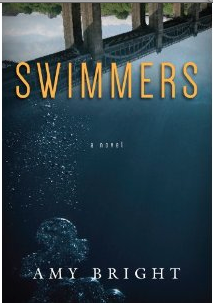I said, "Do you think it's weird that Booker tricked us into going on a blind date and yet neither of us seems mad or upset? I'm not upset. Are you? I mean, you could be pretending. But you seem pretty okay with tonight."The book at the heart of Every Exquisite Thing is fictional, and the way it influences and impacts Nanette's life is reminiscent of Hazel's reading of An Imperial Affliction in John Green's The Fault in Our Stars. But while I had absolutely no interest in the plot or characters in Green's fictional book, I read Every Exquisite Thing wishing there was a way to read the parallel narrative, and that The Bubblegum Reaper was a real book, rather than one invented to suit the purposes of the novel (although the fictional cover art for The Bubblegum Reaper exists under the dust jacket, and it will be interesting to see how the paperback release incorporates that art into a redesign). What I mean to say is that The Bubblegum Reaper makes a much more compelling fictional book than An Imperial Affliction. There's even a nod to Carlos Ruiz Zafon's The Shadow of the Wind, a book about an author who buys up all of his books to keep anyone from reading them; there's a rumour that Booker does that, too.
He blinked a few times as if he was surprised by my words, and then the sentences that came out of his mouth were both wonderful and sad. "Honestly? This is the best night I've had in years. Maybe in my entire lifetime."
The novel explores the way that books can impact teenagers' lives, especially the ones they find in high school. While Alex is impacted utterly by the protagonist of The Bubblegum Reaper, a Holden Caulfield-esque character named Wrigley, Nanette's life is changed in more subtle ways. Wrigley's repetition of wanting to quit (Nanette isn't sure what he wants to quit, exactly) is the permission and insistence she needs to quit her high school soccer team, even if it could lead to a scholarship and college acceptance.
I think Every Exquisite Thing is my new favourite Matthew Quick book. It offers compelling and flawed characters trying to find their place in the world, even if their choices aren't conventional or expected; even if they are both of those things.






